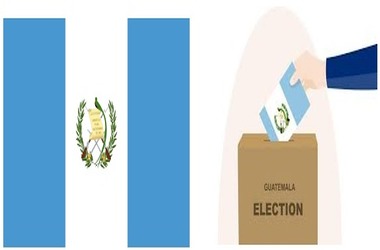Guatemala’s Supreme Electoral Tribunal is revolutionizing the transparency and reliability of the country’s presidential elections by leveraging blockchain technology and Bitcoin timestamping. This groundbreaking initiative, led by Guatemalan startup Simple Proof in collaboration with Bitcoin developer Peter Todd, utilizes OpenTimestamps to time-stamp crucial election-related documents, enhancing the integrity of the electoral process.
The Innovation to Ensure Electoral Integrity
Facing a backdrop of historical corruption and political fraud, Guatemala’s Supreme Electoral Tribunal is embracing an innovative approach to restore faith in its electoral system. By employing OpenTimestamps, the initiative seeks to eliminate vulnerabilities tied to human signatures and enhance the security and transparency of election-related documents.
OpenTimestamps and Bitcoin: The Guardian Angels of Election Documents
OpenTimestamps, a tool employing hash functions and the Bitcoin blockchain, acts as a guardian against fraud or tampering with election documents. This cryptographic time-stamping technique represents a significant advancement in information security, providing a secure and transparent means to anchor data in the Bitcoin blockchain. The reliance on mathematics rather than human signatures ensures a high level of security.
How Bitcoin Technology Actually Saves Democracy And Election Integrity
I dived with @carlostoriello into an interesting discussion of how #Bitcoin can be a powerful tool to maintain election integrity through timestamping and immutable election data.
Carliño shares his insights… pic.twitter.com/BXHe7hMNb6
— Bitcoin Beach (@Bitcoinbeach) January 27, 2024
The process involves calculating the hash of user information and adding it to a Bitcoin block through a transaction. The hash of the block is crucial for verification, anchoring the timestamped information prior to the creation of the Bitcoin block. This approach guarantees the existence of documents before a specific date, offering a robust and secure solution for electoral contexts.
Overcoming Historical Distrust: A Game-Changer for Guatemala’s Elections
Historically plagued by corruption and fraud in its political system, Guatemala is utilizing the Immutable Backup solution through OpenTimestamps to record evidence of documents on the Bitcoin blockchain. This immutable recording ensures any manipulation of documents becomes evident and verifiable by citizens. Through a dedicated web portal, Guatemalan citizens can verify tally sheets and their timestamps, promoting transparency and restoring confidence in the electoral process.
While the technology cannot validate the content of documents, it guarantees their integrity and timestamp. This innovation enables the detection of anomalies, fostering an environment of electoral transparency. For instance, a tally sheet timestamped long after polls’ closure raises suspicion and signals potential tampering.
This technology’s effectiveness was evident in a recent presidential election when Bitcoin’s blockchain disproved fraud accusations against the election winner, Bernardo Arévalo. The collaboration between Simple Proof, OpenTimestamps, and the Supreme Electoral Tribunal showcases the transformative power of blockchain technology in safeguarding democracy and transparency in electoral processes.
This initiative not only strengthens confidence in the Guatemalan electoral system but also sets a precedent for other countries seeking to enhance the integrity of their elections through blockchain technology.

